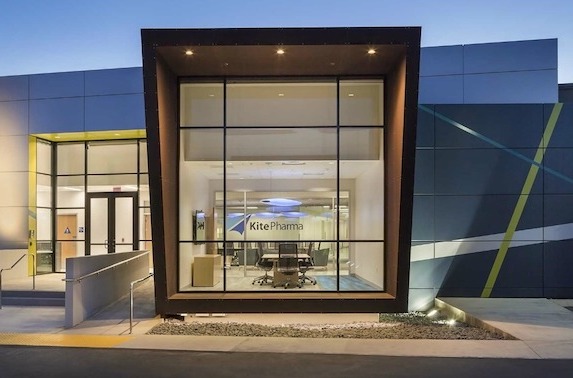Kite and Epic Bio announce cancer cell therapy collaboration agreement
License out/inImmunotherapyCell TherapyGene Therapy

Preview
Source: PMLiVE
Kite, a Gilead company, and Epicrispr Biotechnologies have entered into a research collaboration and licensing agreement aimed at developing new cancer cell therapies.
The partnership centres around Epic Bio’s proprietary gene regulation platform, which includes ultra-compact CRISPR components to enable in vivo delivery via a single AAV vector.
Under the terms of the agreement, Epic Bio will develop constructs for Kite-selected targets for use in CAR T-cell therapies directed at blood cancers
David Barrett, vice president of cell biology and translational medicine at Kite, said: “Cell-based cancer immunotherapies have reshaped modern cancer care, but we have still only scratched the surface of their potential benefit for patients… We look forward to collaborating with Epic Bio with the goal of further advancing today’s cell therapies and potentially expanding their reach and impact on patients.”
Though exact financial details of the deal have not been disclosed, Kite will make an upfront payment to Epic Bio, which will be eligible to receive performance-based development, regulatory and sales milestone payments, as well as tiered royalties on any approved products that result from the collaboration.
“Epic Bio’s approach is not only promising for in vivo medicines, but may also enable next-generation cell therapies to reach a wide range of patient populations.”
Over 40,000 people are diagnosed with blood cancer each year in the UK, and over 250,000 people are currently living with the disease. There are three main groups of blood cancer: leukaemia, lymphoma and myeloma.
In April, Kite announced that two of its CAR T-cell therapies had been recommended by the National Institute for Health and Care Excellence (NICE) as options to treat certain aggressive blood cancers.
Yescarta (axicabtagene ciloleucel) was recommended for adults with diffuse large B cell lymphoma that returns within a year of, or is resistant to, first-line chemoimmunotherapy, while Tecartus (brexucabtagene autoleucel) was recommended for use as an additional treatment for patients aged 26 years and older with relapsed or refractory B-cell precursor acute lymphoblastic leukaemia.
For more details,please visit the original website
The content of the article does not represent any opinions of Synapse and its affiliated companies. If there is any copyright infringement or error, please contact us, and we will deal with it within 24 hours.
Organizations
Indications
Targets
-Chat with Hiro
Hot reports
Get started for free today!
Accelerate Strategic R&D decision making with Synapse, PatSnap’s AI-powered Connected Innovation Intelligence Platform Built for Life Sciences Professionals.
Start your data trial now!
Synapse data is also accessible to external entities via APIs or data packages. Empower better decisions with the latest in pharmaceutical intelligence.




